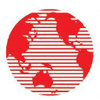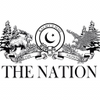Smoking in Pakistan
According to the WHO data, as of 2024, there were approximately 18.3 million smokers in Pakistan. This figure represents an increase from 17.5 million smokers in 2022 and equal number of 18.3 million in 2020. The adult current smoking prevalence rate in 2024 was reported to be 11.6%, a slight decrease from 12% in 2022 and 13.1% in 2020. The current smoking prevalence among males in 2024 was 20.6%, a slight reduction from 22.7% in 2020, while among females it was 2.6% in 2023, a slight decrease from 2.7% in 2022. For reference, the adult daily tobacco smoking prevalence in 2014 was 11.5% with 20.1% among males and only 2% among females. There were 14.5 million daily smokers in the same year. In 2021, tobacco smoking caused 7.59% of all deaths in the country, equating to 130,593 tobacco-related fatalities, with males accounting for 106,028 deaths and females for 24,565. Despite a reduction in recent years, these prevalence and mortality statistics underscore the ongoing public health challenge posed by tobacco smoking in Pakistan, informing government strategies aimed at reducing tobacco health impacts.
Read articles from Pakistan
January 09, 2026 by tobaccoreporter.com
Pakistan Bill Would Treat Vape Like Cigarettes
Pakistan's Senate Committee approved the Electronic Nicotine Delivery Systems Bill to regulate vaping amid concerns of youth usage. The bill imposes strict controls, including banning sales near educational institutions, setting a minimum age of 18, and prohibiting vaping in public spaces. It aligns vape regulations with traditional tobacco products, enforcing advertising bans and product standards. Penalties include fines up to Rs 50,000 ($175) for offenders. The bill awaits Senate discussion after inter-ministerial review, indicating increased oversight in Pakistan's vaping industry.
January 08, 2026 by 2firsts.com
Pakistan Senate bill seeks strict control of vapes and e-cigarettes in Islamabad, including under-18 sales ban
The Senate approved the Electronic Nicotine Delivery Systems (Regulation) Bill, aiming to control the sale and use of vapes and e-cigarettes in Islamabad. Key points include restrictions on sales near schools, bans on advertising, and proposed penalties for violations. The bill also sets standards for packaging and nicotine levels, with strict age verification for online sales. If passed, vaping would be prohibited in various public settings. Violators could face fines up to Rs50,000. Ministries are finalizing enforcement measures before presenting the bill in the Senate.
September 02, 2025 by 2firsts.com
Dr. Ziauddin Islam: Smoke-Free Pakistan — Dream or Reality?
Dr. Ziauddin Islam's article discusses how Pakistan can learn from Sweden's success in becoming the first "smoke-free" nation. By adopting strict policies, harm reduction strategies, and promoting reduced-risk products, Pakistan can work towards reducing its tobacco-related deaths. Sweden's success in lowering smoking rates through evidence-based policies and harm reduction serves as a model for other countries. Pakistan faces challenges in enforcing tobacco control laws and lacks research on harm reduction products. Emulating Sweden's comprehensive approach and promoting public awareness can help Pakistan move towards a smoke-free future. Dr. Islam emphasizes the importance of determination and effective policymaking in combating the tobacco epidemic.
June 16, 2025 by dawn.com
Colourful vapes in fun flavours might be a bigger problem in Pakistan than you think
The text discusses the rise of vaping in Pakistan, with shops selling e-cigarettes targeted at adults but attracting young users with fruity flavors. Despite claims of being safer than cigarettes, health experts remain cautious due to unknown long-term effects. The tobacco industry is pivoting towards nicotine products, leading to concerns about addiction and access to underage users. Weak regulations in Pakistan allow for a thriving market, while global concerns about the environmental impact of disposable vapes are also highlighted. The narrative questions the true safety of vaping, emphasizing the need for stricter regulations and public awareness campaigns to prevent a potential health crisis.
June 12, 2025 by brecorder.com
A public health milestone
The Punjab government led by Chief Minister Maryam Nawaz Sharif has enforced a ban on e-cigarettes, vapes, and nicotine pouches to safeguard public health, citing concerns over youth usage. Health experts highlight the harmful effects of nicotine products on various body systems. The move follows similar bans in other countries due to safety concerns. Advocates stress the need for a national ban to protect youth from addiction and health risks. Punjab's proactive step underscores the urgency for broader regulations and enforcement nationwide to align with global tobacco control standards. The ban reflects a critical shift towards prioritizing public health over industry profits.
March 11, 2025 by filtermag.org
The World Needs Gender-Specific Tobacco Harm Reduction
Tobacco harm reduction saves lives by providing safer alternatives for smokers unwilling to quit. Women face unique challenges due to societal norms and health risks associated with smoking, including reproductive complications and cancer. Initiatives like the Lady Health Workers program in Pakistan demonstrate effective outreach to promote awareness and harm reduction. Gender-sensitive approaches are crucial in policy-making and advocacy to ensure equitable access to resources. Empowering women through THR not only benefits their health but also influences their families and communities positively. Collaboration with healthcare providers and tailored messaging are essential in promoting THR among women for a more inclusive and effective strategy.
January 08, 2025 by dailyausaf.com
Tobacco-Free Kids, Indus Hospital’s alleged involvement in money laundering exposed
State Bank of Pakistan froze INGOs' accounts Tobacco-Free Kids and Vital Strategies for illegal activities in Pakistan. Local NGOs funded by these INGOs are not affected. Allegations of money laundering involving local NGOs and businesses like Wasabai were reported. Vital Strategies has operational violations and alleged links to India. Bruce Mandell chairs Vital Strategies and has ties to a Jewish family.
January 08, 2025 by nation.com.pk
Ministry criticizes Bloomberg for overlooking INGOs' corruption in Pakistan as operations are halted
Pakistan's Ministry of Interior's recent ban on INGOs like CTFK and Vital Strategies has sparked public interest due to alleged illegal activities. CTFK's Country Manager faced embezzlement accusations, raising questions about their operations. Mustehkam Pakistan highlighted the need for accountability. The ban was imposed for non-registration and violation of laws. Financial irregularities could have led Pakistan back on the FATF grey list. Funds misuse and alleged support for illicit mafias have damaged tobacco control efforts. The INGOs' influence on policy-making and lack of transparency were concerning. Stricter oversight is crucial to align INGOs' work with Pakistan's priorities and legal framework, safeguarding national interests and public health.
November 15, 2024 by springer.com
Lady Health Workers Smoking Cessation Initiative in Rural Pakistan
In Pakistan, tobacco smoking and indoor smoke from cooking fires pose significant health risks. Lady Health Workers (LHWs) play a crucial role in improving healthcare access, particularly in rural areas. This study aimed to explore the practicality of training LHWs to deliver health education aimed at reducing household exposure to tobacco smoke and indoor biomass smoke, while also documenting baseline exposure levels and assessing the immediate impact on household awareness and intentions to reduce exposure.
November 08, 2024 by nation.com.pk
Immediate regulation sought on emerging tobacco, nicotine products
The Society for the Protection of the Rights of the Child (SPARC) urges immediate regulation of emerging tobacco and nicotine products in Pakistan due to their increasing popularity among children and youth. These products pose health risks and contribute to a growing tobacco epidemic. Dr. Khalil Ahmad warns that the tobacco industry's marketing of these products misleads young users about their safety, leading to addiction. He stresses the need for urgent government intervention to protect future generations and reduce overall tobacco consumption. SPARC advocates for stringent policies to curb the sale and production of these harmful products, emphasizing the societal and health implications of widespread nicotine addiction.
- Page 1 of 3







